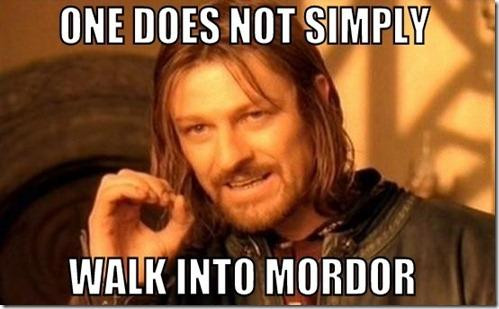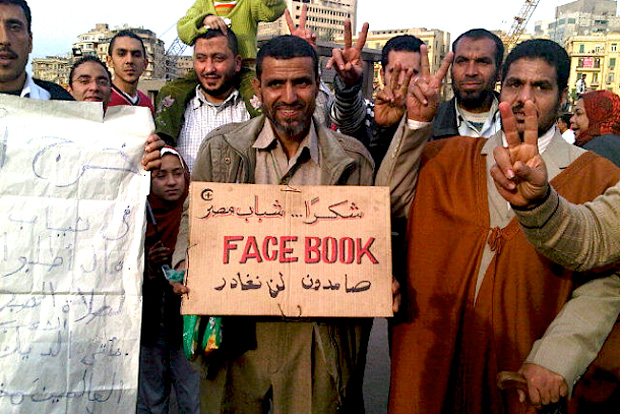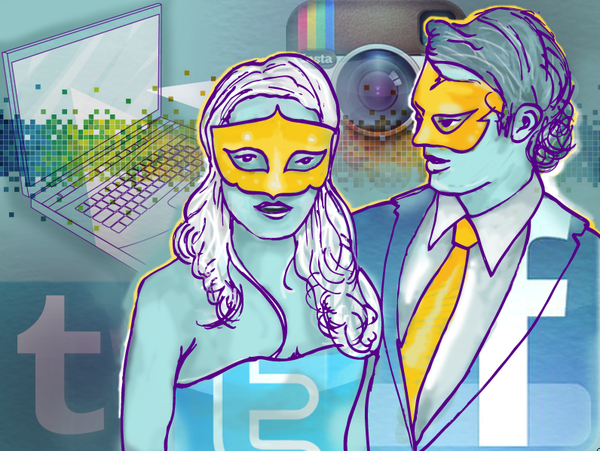Can you tame the social media shrew? (source of image)
Social media is a lot like fire. It is a good servant but a bad master.
As a content and social media marketing consultant, my job involves studying how people behave on social media and what brands can do to add value to online communities.
I’ve noticed that social media can be a double-edged sword. It bring out both the best and the worst in people – often within the same hour!
Taming the Social Media Shrew
If you manage it well, social media can lead you quickly into the limelight.
If you fail to understand its unique dynamics, however, social media can be like a terrifying tsunami – an unearthly force which could lead to disastrous digital and real outcomes.
The irony is this. While some hanker after attention yet fail to receive any, others may try all means to shy away from the spotlight but fail miserably. And then there are those who seek to portray a certain image online when the truth is probably a far stretch.
What makes a Facebook update, Tweet or YouTube video “go viral”? Why do some ideas spread faster and more widely than others? And how do we discern between what’s real and fake?
To understand this, let us consider the four Ms of the digital and social age: Memes, Mobs, Movements, and Masquerades.
Memes

Courtesy of Digital Trends
An Internet meme according to Wikipedia is defined as the following:
“An idea, style or action which spreads, often as mimicry, from person to person via the Internet, while imitating the concept.”
Memes may be images, hyperlinks, hashtags, pictures, videos, words or phrases. They are often closely associated with popular culture, the like ever popular meme featuring Boromir in Lord of the Rings above.
Often, memes are augmented by the persons spreading the message. In other words, they will customise their content and give it a unique personal touch before disseminating it outwards to their networks.
Memes are usually innocuous and fairly harmless in nature. Examples include the cutesy “gwiyomi” song and pose, planking, photobombs, Chinese photo-shop pranks and a whole lot more here. Like the super catchy Pen-Pineapple-Apple-Pen or PPAP song.
These are mostly short-lived and temporal.
Movements
Courtesy of The Arabian Gazette
Unlike the ephemeral, innocuous and ad-hoc nature of memes, social movements tend to be more structured and purposeful. Rooted in passion, emotion and a propensity for action, movements will increasingly be a way of life for many.
Spurred by our natural propensity to form tribes, movements are usually led by a champion with a strong sense of mission and purpose. In the digital age, they are catalysed by social networks which allow online communities to aggregate around causes and interests.
Movements can be as large as political upheavals which overthrow governments (such as the Arab Spring) to smaller grassroot actions to preserve the environment or feed the poor.
While some have sustained themselves on a longer-term basis, others may be more seasonal.
Mobs

Courtesy of The Wall Street Journal
Our next social media phenomena – online lynch mobs – can either be uplifting or scary. This really depends on where you happen to stand when it comes to pertinent issues.
Like it or loathe it, we are living in an age of digital or Internet vigilantism. One where ill-conceived comments could cost you your livelihood, home and even friendship.
Justice, when served by the mob, can be ruthless and relentless.
Just ask Amy Cheong, whose negative remarks on Malay void deck weddings got her booted out of Singapore to Perth. Or British expat banker Anton Casey’s comments on “poor people” in Singapore led to an online furore which forced him to leave his job, home and friends.
Unfortunately, mobs may sometimes be unthinking. This could lead to cyber bullying – negative situations where logical and reasonable human beings become illogical beasts on the Internet, stirred by their emotions.
Masquerades
Courtesy of Silicon Valley De-bug
On social media, everybody seems to be having a ball of a time. Your friends are clubbing, feasting, drinking, always holidaying, and getting themselves whipped into shape.
If you follow social media influencers (like I do), you’ll be even more amazed at how blissful their lives could be. Every photo and video they take portrays a blessed and bountiful life.
Before you start thinking that you’ve been born into the wrong genetic pool, you need to consider this:
Everybody is showing their best face on Facebook. And every Tweet is engineered to be terrific.
I like how this columnist wrote about why the Internet is like a shield on Huffington Post. In a way, social media is like a masquerade party – one where you choose to only put forth what you wish the online world to see while concealing your warts and frailties.
The danger here is that it could lead to unrealistic expectations of what the world is truly like. This could not only lead to a belittling of self (“my life is such a mess, compared to hers”), but possibly spiral downwards to depression.
What Should You Do Online?
Now that you’ve learned what the Four Ms of the social and digital age are, the question arises on what you should do about it.
Instead of mindlessly following every meme, movement, or mob online, take a step back. Reflect on what’s really happening, and choose to act in a positive manner.
Likewise, seek to dive more deeply into the lives of others, going beyond their online facade. Try to engage with them in one-to-one conversations so that you can know the real person behind that photo-perfect hair-always-in-place image which you’ve perceived online.
At the end of the day, remember that what ultimately counts isn’t how many fans we have, how many viral hits we’ve generated, or the number of social mentions we’ve garnered. Rather, it lies in how we’ve managed to make a real and positive impact in the lives of others as well as our own.
What are your thoughts on the 4Ms? Can we harness these insights to move the masses in fruitful and productive ways?




Glad to read your post :). It is very informative!
Very value able post, I read the whole story when I start reading it.
Here we’ve shared 50+ best Selfie Instagram Captions for you. These Captions helps you to describe your beautiful selfies in a words. https://www.funchap.net/selfie-instagram-captions/